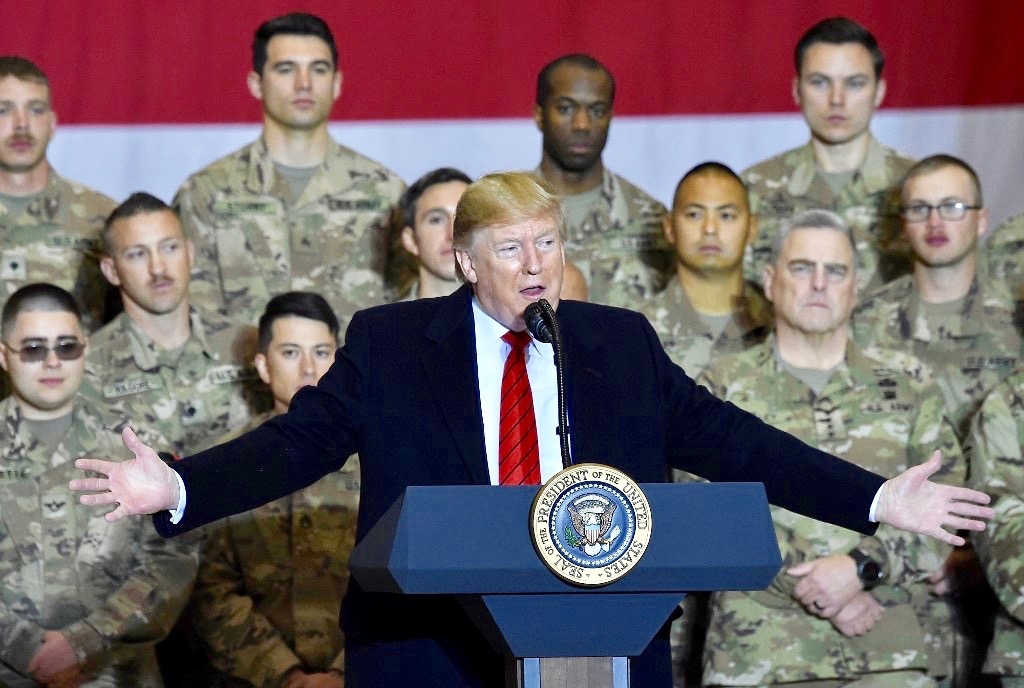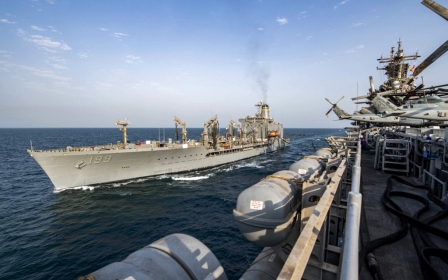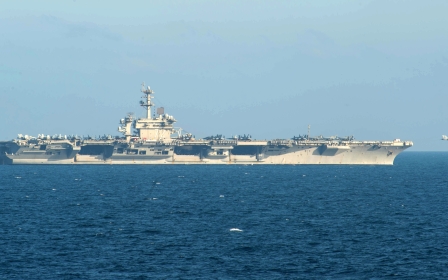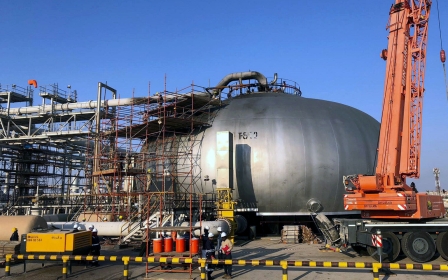Pentagon denies report it is considering sending 14,000 more troops to Middle East

The Pentagon has denied a report that the United States was considering sending up to 14,000 more troops to the Middle East in the face of a perceived threat from Iran.
The Wall Street Journal reported on Wednesday the possible deployment would include "dozens" more ships and double the number of troops added to the US forces in the region since the beginning of this year, citing unidentified US officials.
The US newspaper said President Donald Trump could make a decision on the troop deployment as early as this month.
"To be clear, the reporting is wrong. The US is not considering sending 14,000 additional troops to the Middle East," Pentagon spokesperson Alyssa Farah tweeted.
New MEE newsletter: Jerusalem Dispatch
Sign up to get the latest insights and analysis on Israel-Palestine, alongside Turkey Unpacked and other MEE newsletters
Wednesday's report comes after a series of attacks on shipping vessels and a drone and missile attack on Saudi oil installations in September that the US blames on Iran. Tehran denies any involvement.
Some US officials worry, however, that adding more American military resources to the mix could put the region on track for a dangerous and unpredictable conflict.
Washington has already ratcheted up its military presence in the Gulf and expanded economic sanctions against the country, elevating tensions across the region.
In mid-November, the US aircraft carrier Abraham Lincoln sailed through the Strait of Hormuz in a show of force aimed at reassuring allies.
In October, Defense Secretary Mark Esper announced that two fighter squadrons and additional missile defence batteries were being sent to Saudi Arabia, for a total of about 3,000 new troops.
Earlier on Wednesday, Iranian President Hassan Rouhani said the country was willing to return to the negotiating table over its nuclear programme if the US first dropped its sanctions, which have hampered the country's economy and may have contributed to recent domestic turmoil sparked by fuel price hikes.
Middle East Eye delivers independent and unrivalled coverage and analysis of the Middle East, North Africa and beyond. To learn more about republishing this content and the associated fees, please fill out this form. More about MEE can be found here.




